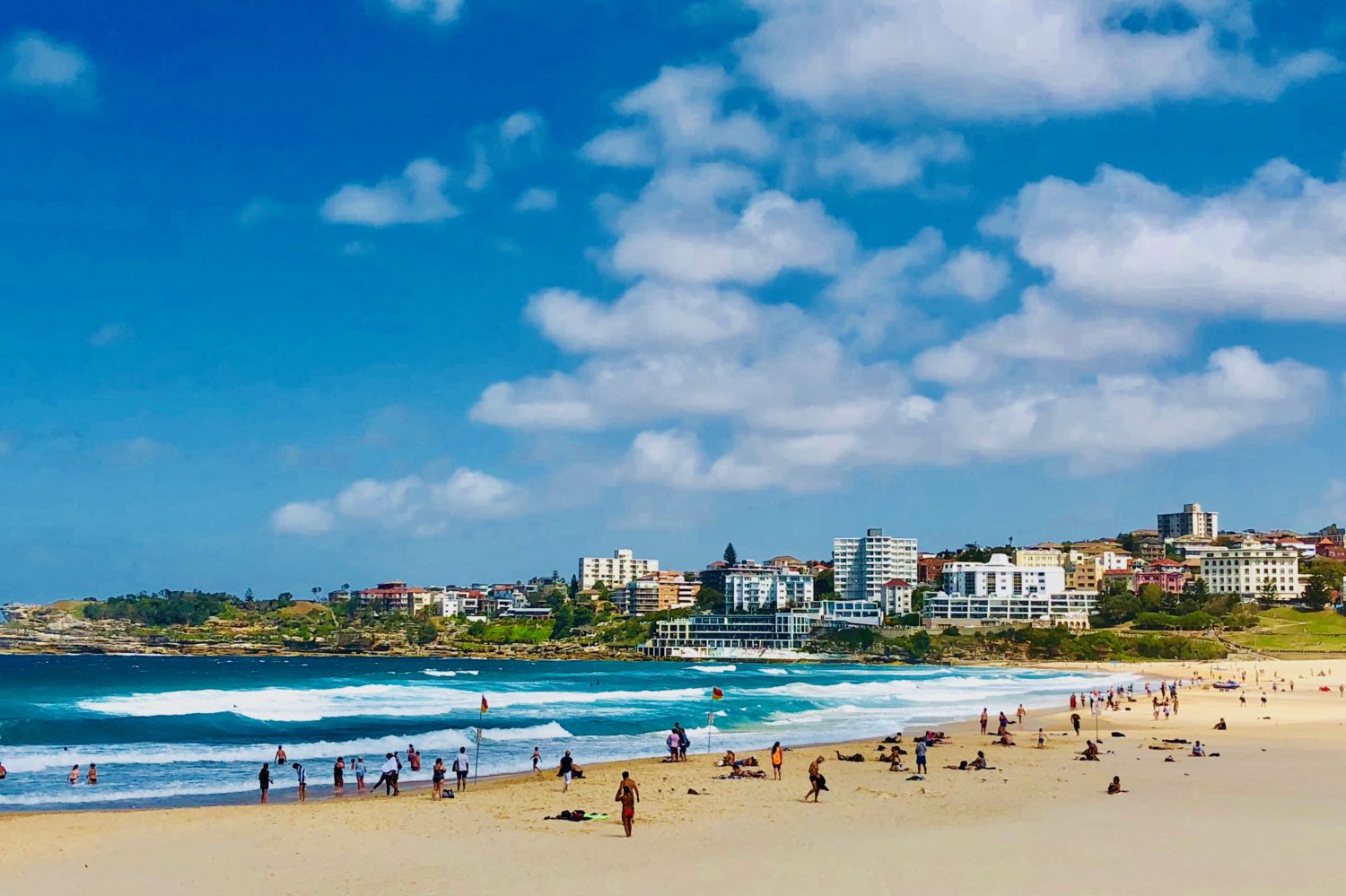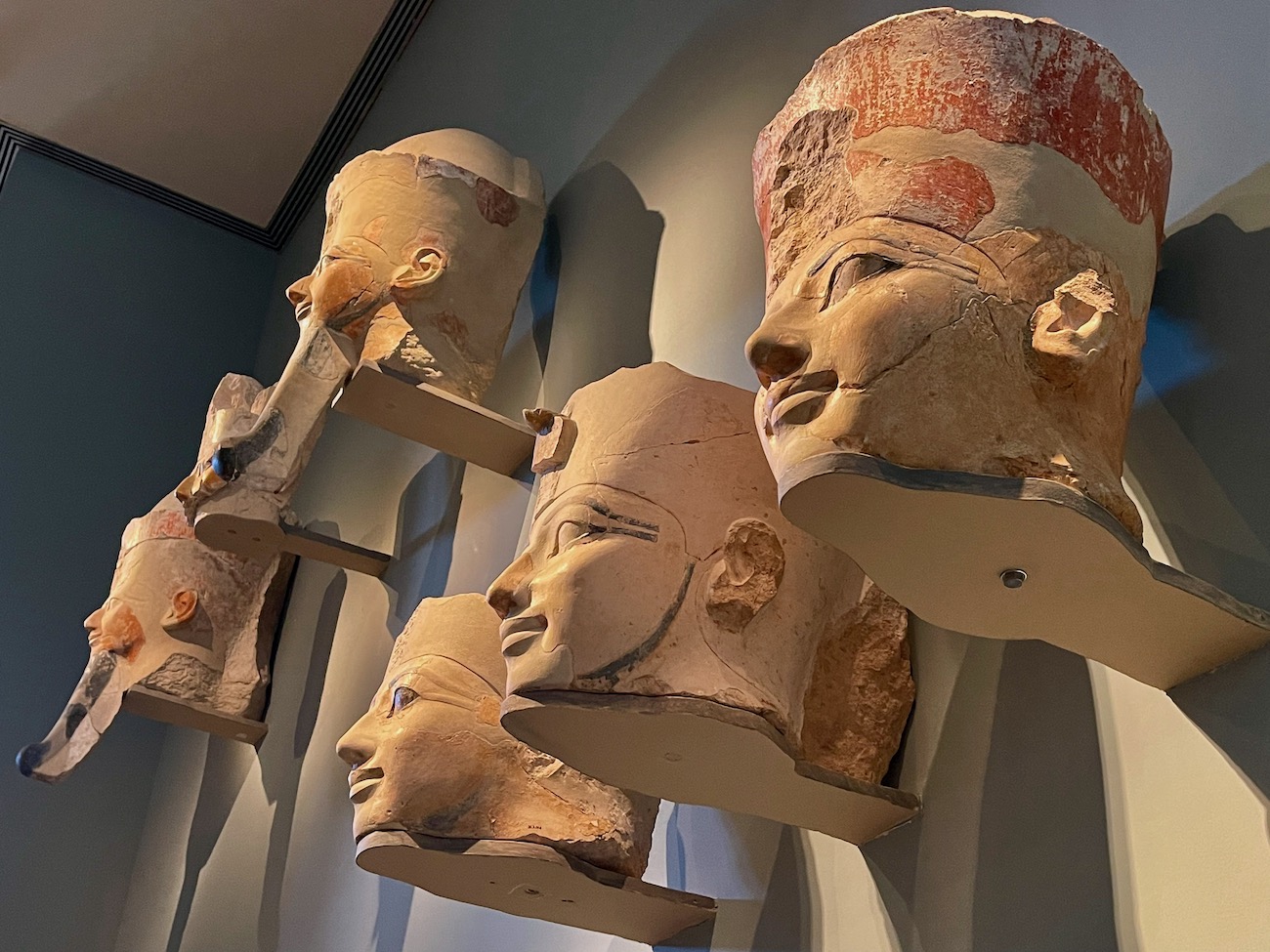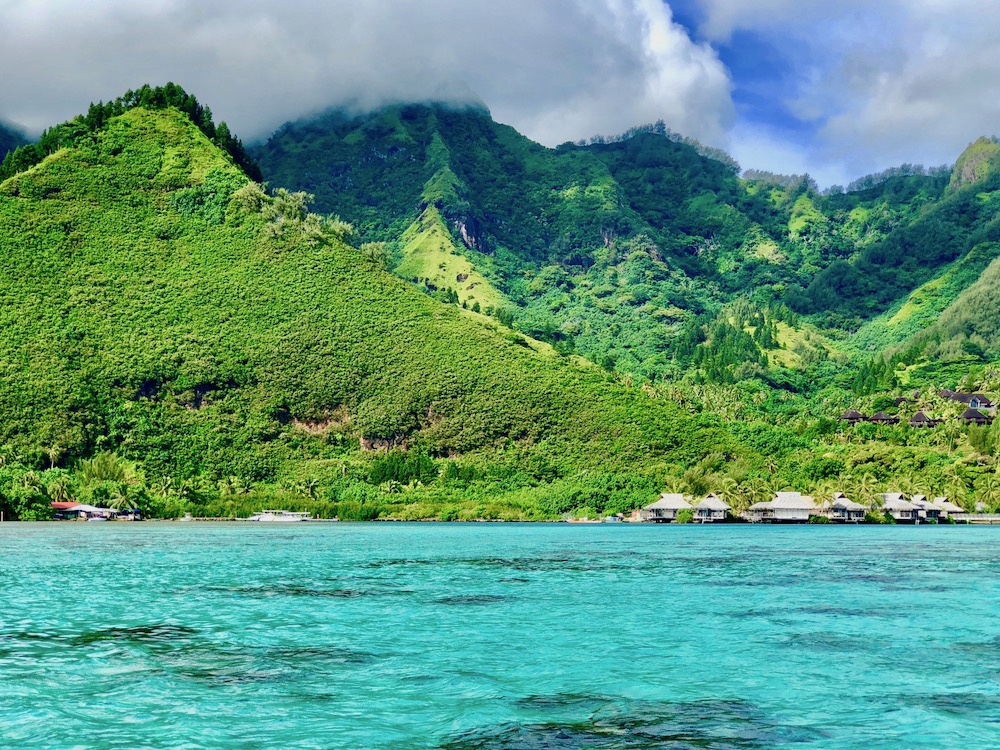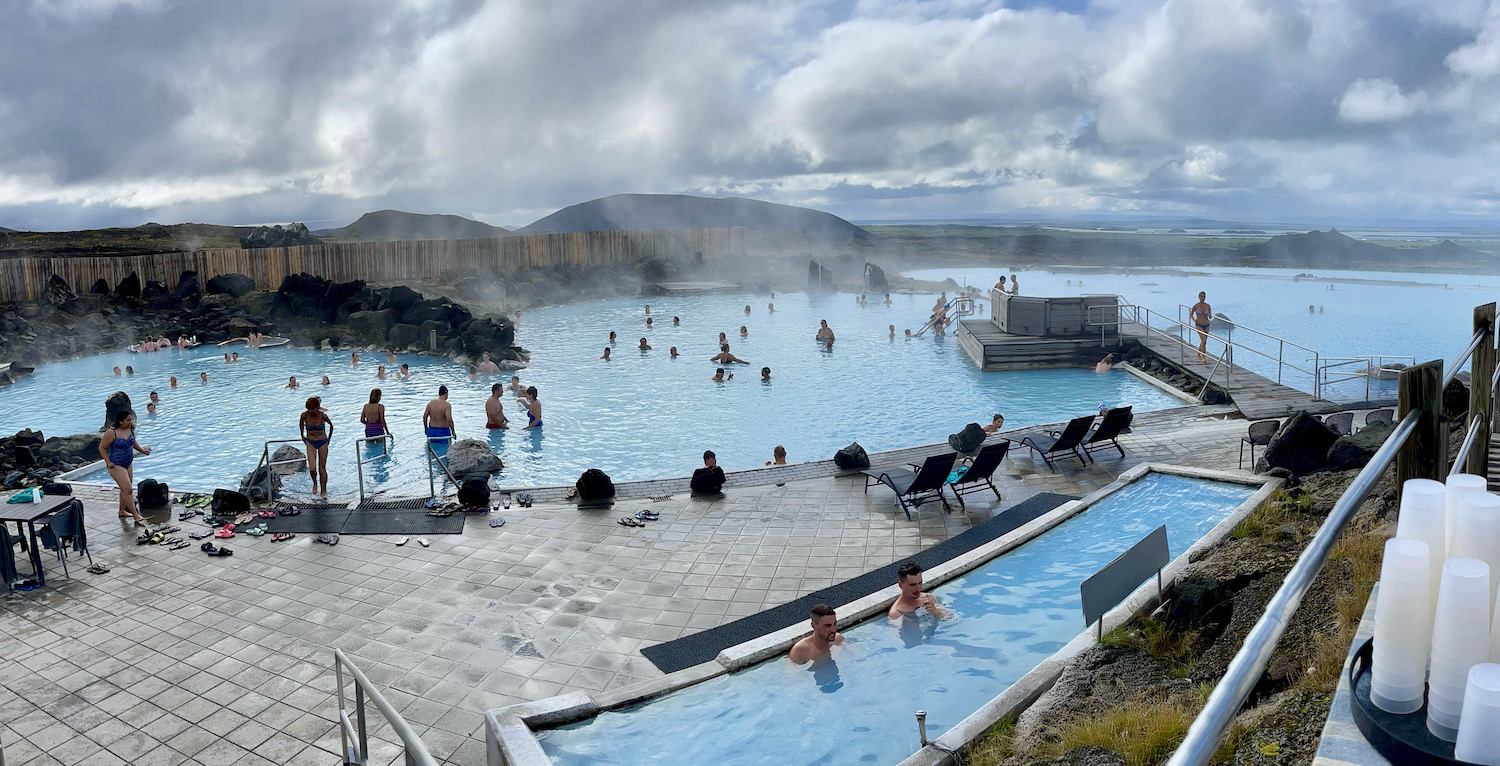
ICELAND: Coastal Cruising, Myavtn Moonscapes, and What About Those Elves and Bad Santas? 
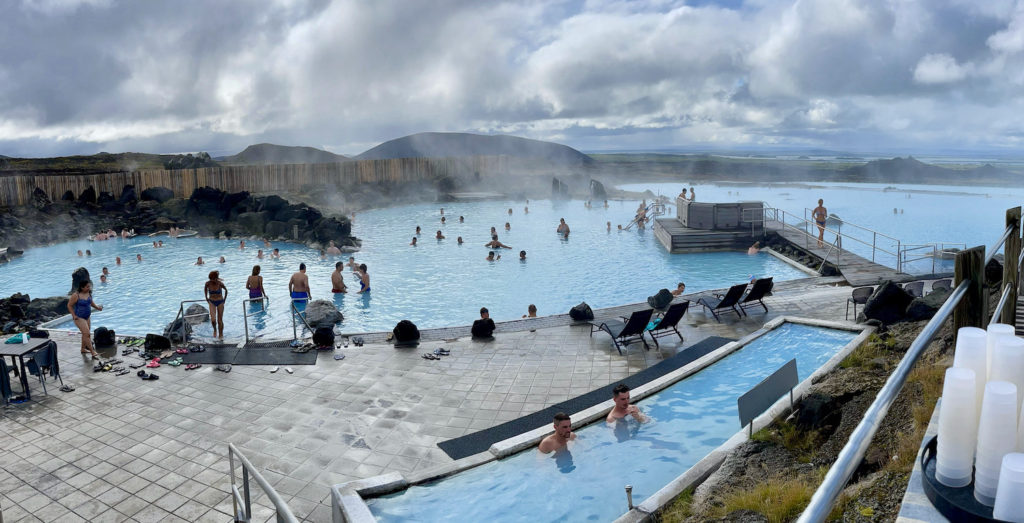
Cruise ships aren’t for everyone.
Never-cruisers shake their heads over the horrors that must lurk aboard a Celebrity Summit-type monster ship, our home for a 12-day Iceland-to-Boston journey. I understand why people with normal reasoning abilities might not want to be smushed together below decks with 2030 passengers sharing plated dinners, swirly martinis, and viral loads.* I get that.
(*About those viral loads: No cruising for us for a time, until those pesky loads calm down. More on that situation in an upcoming post).
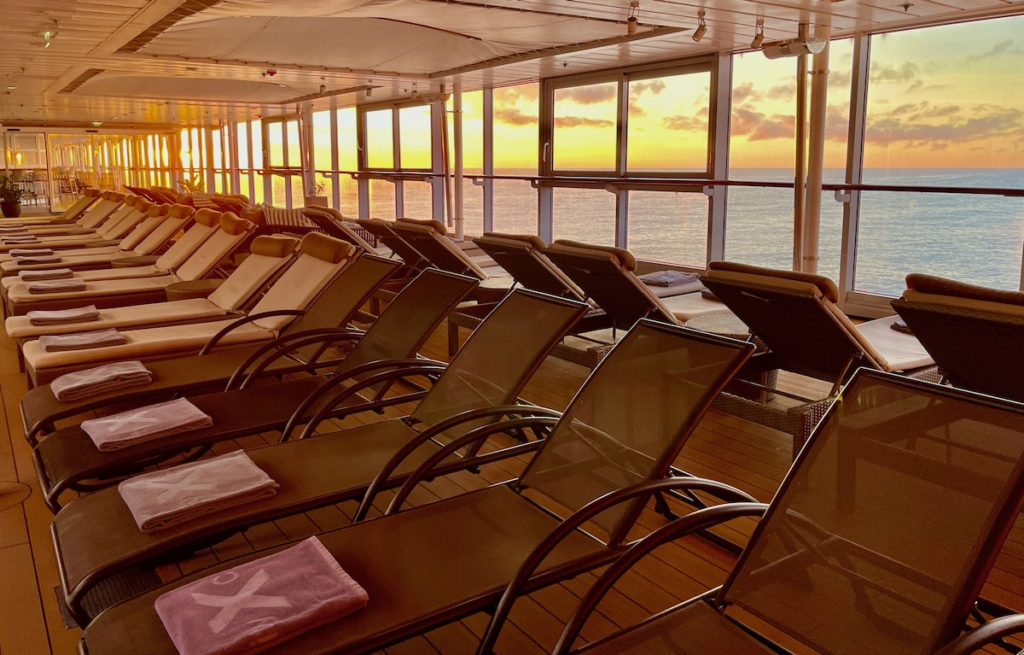
That said, never-cruisers will never watch as deckhands cast off hefty dock lines from immense iron cleats, or lean over a high railing to wave bon voyage. They won’t wait expectantly as the ship’s massive hull ever-so-slowly separates from the dock, as the water chasm between dock and hull yawns wider, as the ship comes unmoored and points her bow out to sea. And they won’t sail off to unexplored lands, either, toward a glowing, far-off horizon.
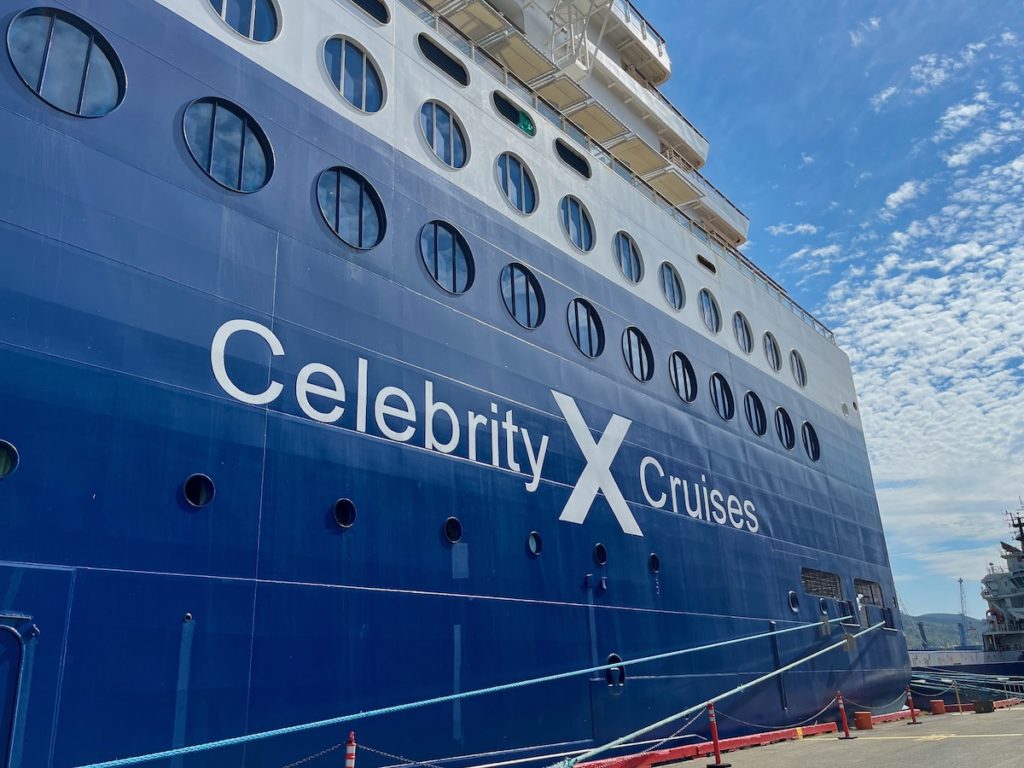
How’s that famous quote go, the one I tacked up on my bulletin board at work?
“To discover new lands, one must have the courage to lose sight of the shore for a very long time.”
Back in my work days, office quotes like that metaphorically cheered this challenge-lover on: Take chances! Try new approaches! Find better solutions!
Those unexplored lands are metaphors no longer. Unexplored lands are just that – UNEXPLORED LANDS – filled with volcanos, glaciers, tectonic plates, Northern Lights, mountains, puffins. Polar bears.
And we want to see those lands.
All of them.

Why? Who knows? Maybe for the same reason that George Mallory was reported to have said, just before his third (fatal) attempt to summit Mt. Everest in 1924:
“Why? Because it’s there.”
Or Tolkien’s magical response:
“Still round the corner, there may wait, a new road or a secret gate.”
Neither of these ‘explanations’ explains anything, of course, but that doesn’t make them less true, especially for us.
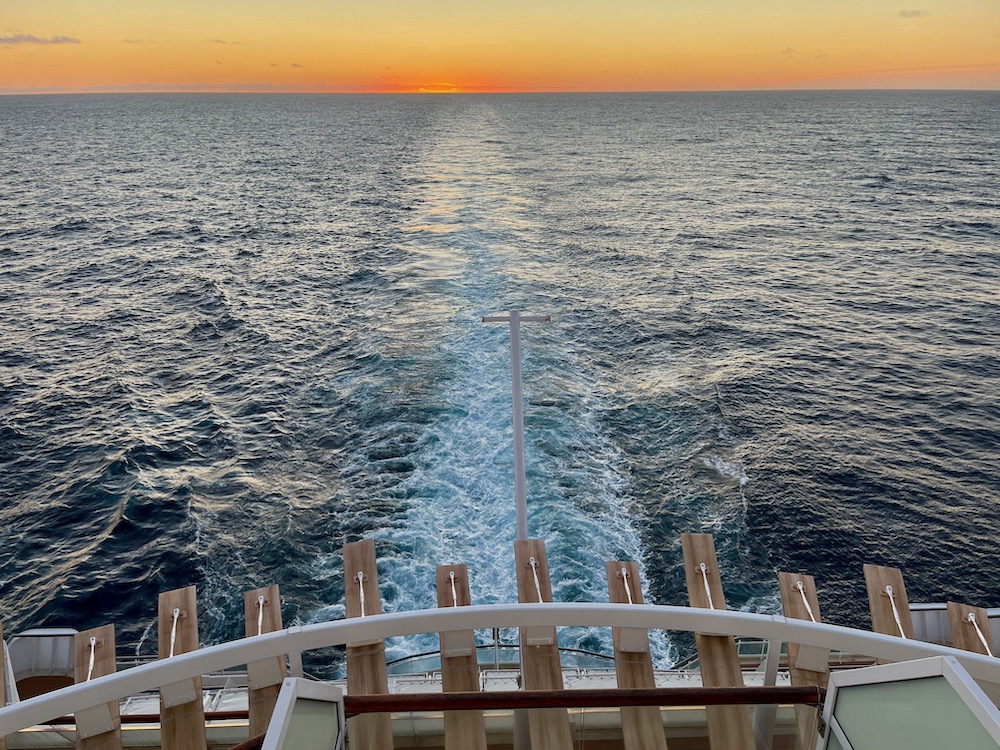
As captain and crew on our 30-ft Puget Sound sailboat back in the day, we thrilled to the same discovery moments as those onboard the Celebrity Summit: The moment we rounded the Point, the moment we spotted the island, the moment we slipped into a still harbor at dusk or dawn. The moment we listened to the clunky rattle of our heavy anchor chain as it dropped to the murky bottom.
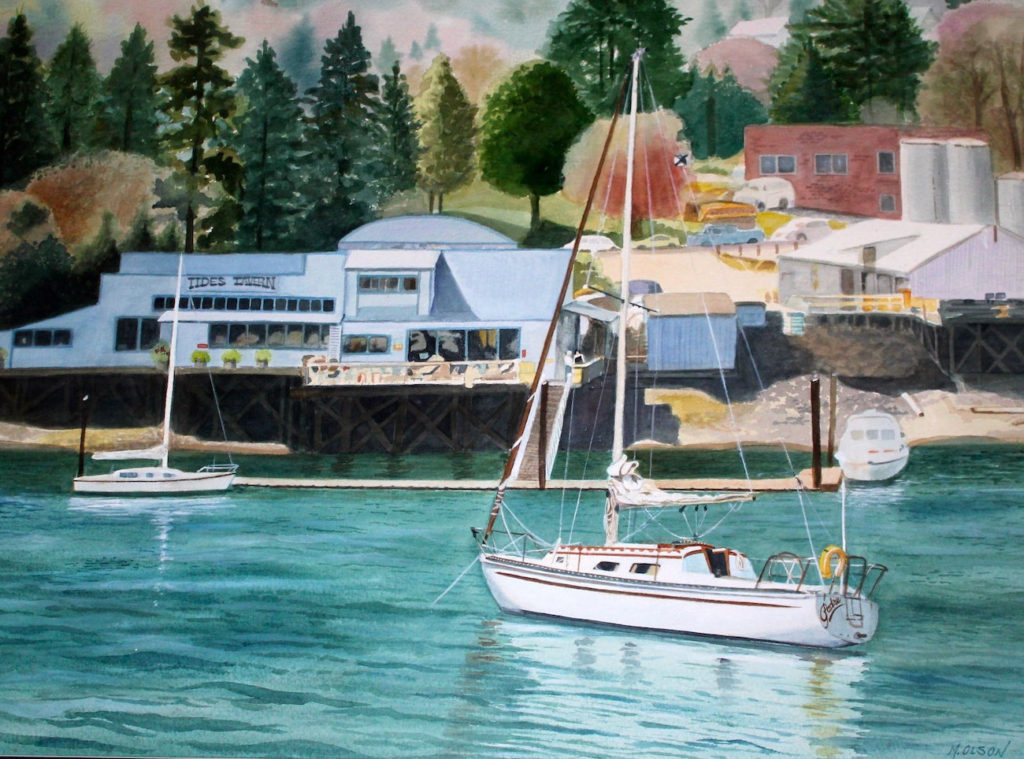
At dawn, the Summit’s monster-sized anchor thunks and clunks below our farthest-forward bow cabin on its journey down to the briny depths. The end of the clunks means we’ve arrived: Time to explore a brand-new port, backpacks affixed to our shoulders and hiking shoes laced on tight.
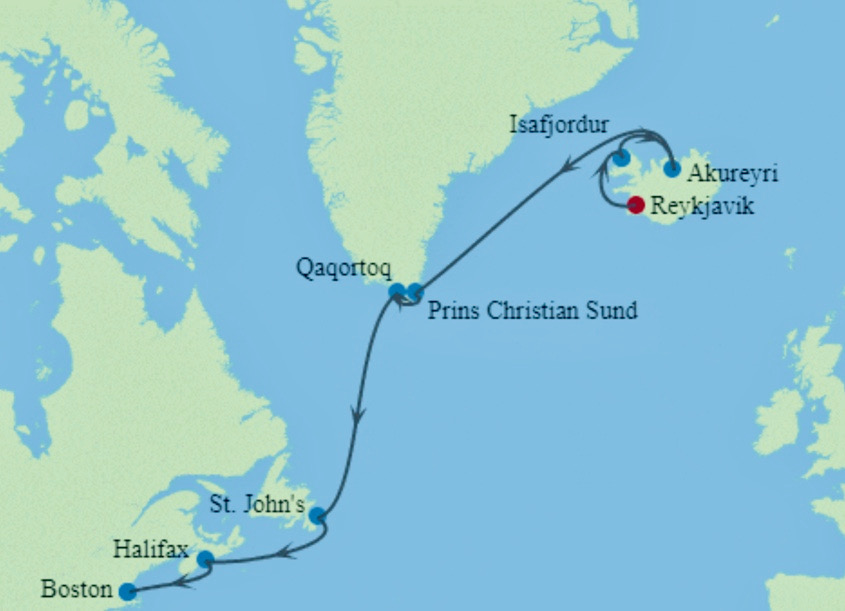
So we don’t cruise for the drinks, the dinners, the shows, the trivia games. Rather, we climb aboard to set sail for far away horizons, one more time. Our Iceland-to-Boston route took us through Arctic Ocean waters, through the Greenland, Denmark, and Labrador Seas, and across the Atlantic for the first time ever. Old sailors such as ourselves thrill to such firsts. Years after the sale of Padre (the sailboat, not the husband), cruises satisfy our yearnings for adventure, and we hope to keep ‘sailing’ as long as we stay afloat.
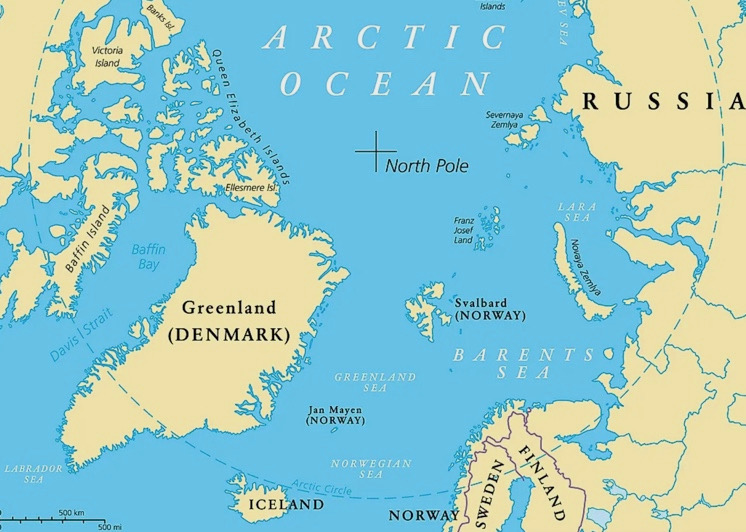
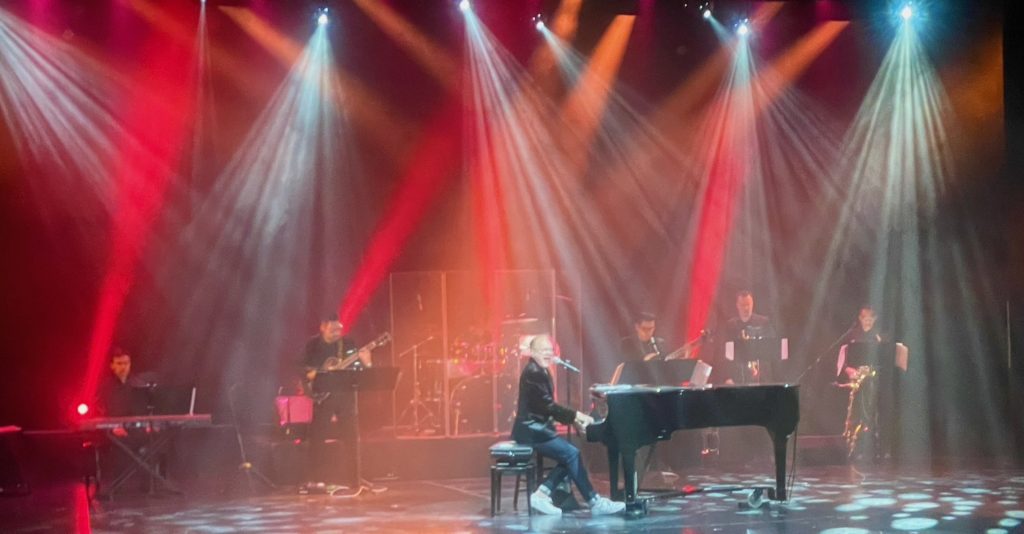
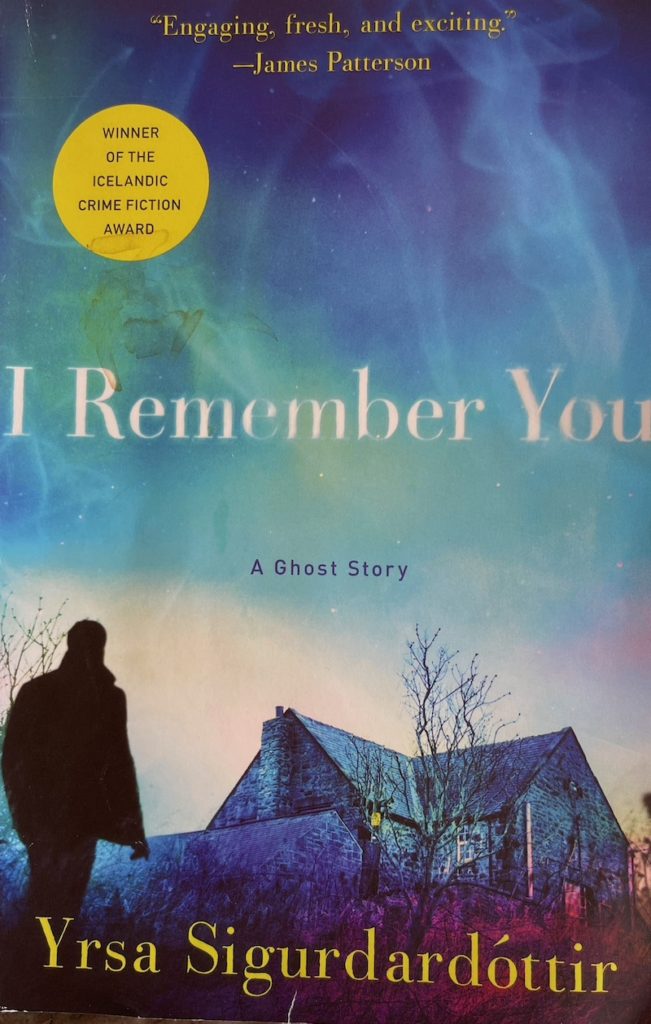
ICELAND PORT STOPS: A MISS AND A HIT
Our wanderlust explains why we were sorely disappointed when due to rough seas, the Summit couldn’t tender in Ísafjörður for our port stop in the Westfjords. Few Iceland tourists reach this remote area, even though many consider it one of the most scenic Iceland landscapes due to its narrow scenic fjords set at the base of towering mountains. Ring Road travelers frequently miss it as well, since a visit requires long treks off main roads onto gravel ones. Yet the turbulent seas proved too much for tender boat launches, so I compensated by reading I Remember You, an Icelandic crime novel set near Ísafjörður.
Thank heavens for novels! At least we were able to ‘visit’ Ísafjörður in this Icelandic crime/ghost story, one I chose specifically due to its isolated Westfjord location. In this terrifying tale, spirits and crimes seem to grow right up out of the soil, the sea, the black rocks, the darkened wilderness. Its chilling sense of dread (so many creaking floors and mysterious thumps), and its overall creepiness factor kept me rapt as we sailed on by, while Celebrity entertained cruisers with added lectures and ship tours.
Yet that’s another reason we both love hanging out on cruise ships: We can always find quiet reading nooks with spectacular sea views, views that eased our disappointed wanderlust souls.
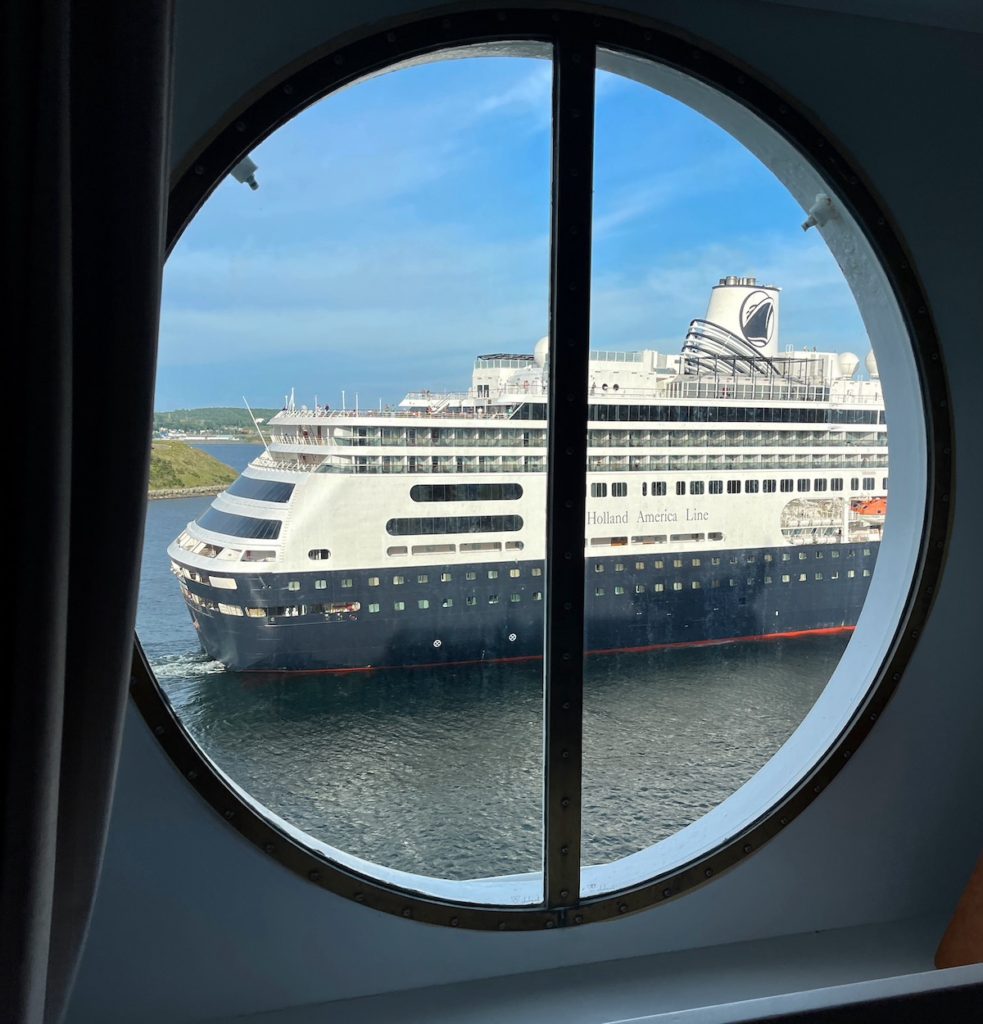
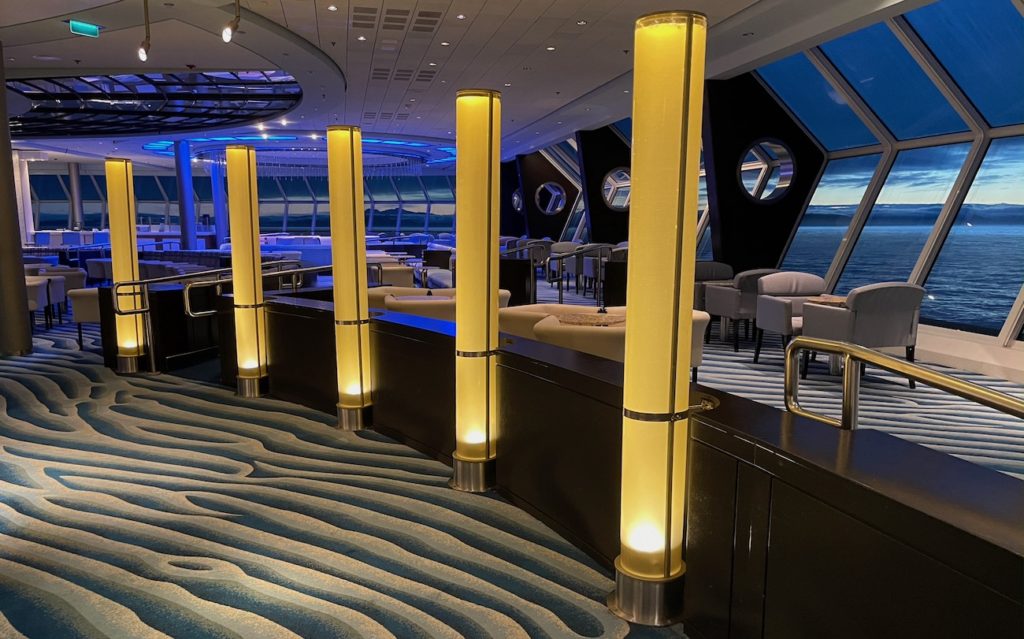
We had better luck two days later when the Summit docked in Akureyri, the second largest city in Iceland. The town of Akureyri is perched at the end of an enchanting fjord, and dotted with historic buildings older than many of the ones we admired in Reykjavik. We loved Akureyri’s heart-shaped stoplights, a city campaign to encourage kindness and cooperation. So Icelandic, that.
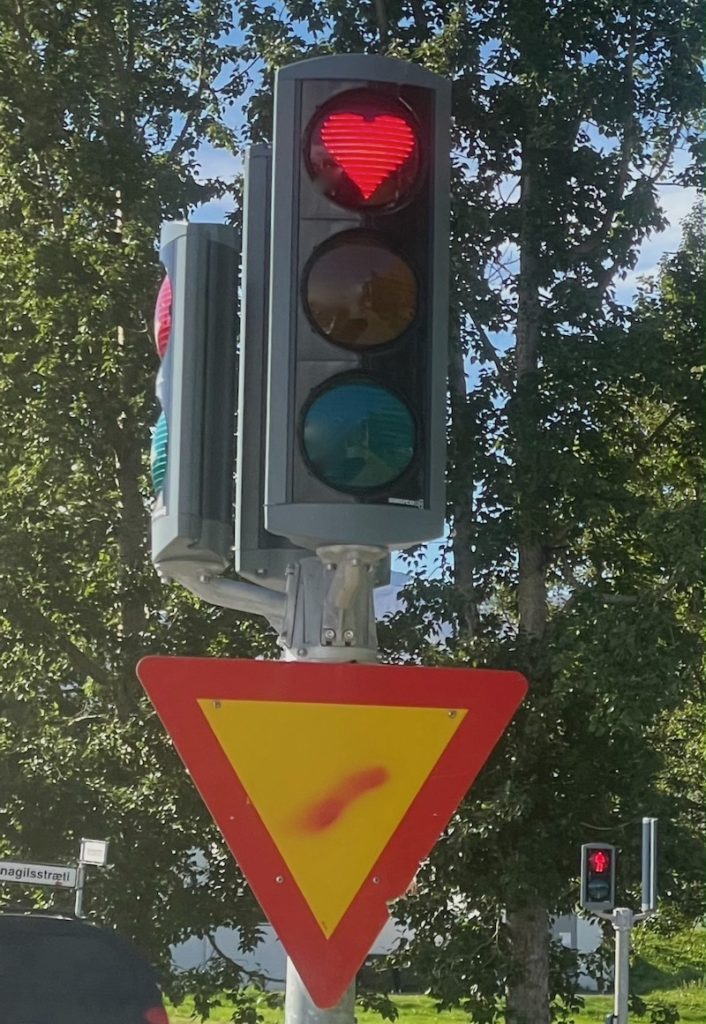
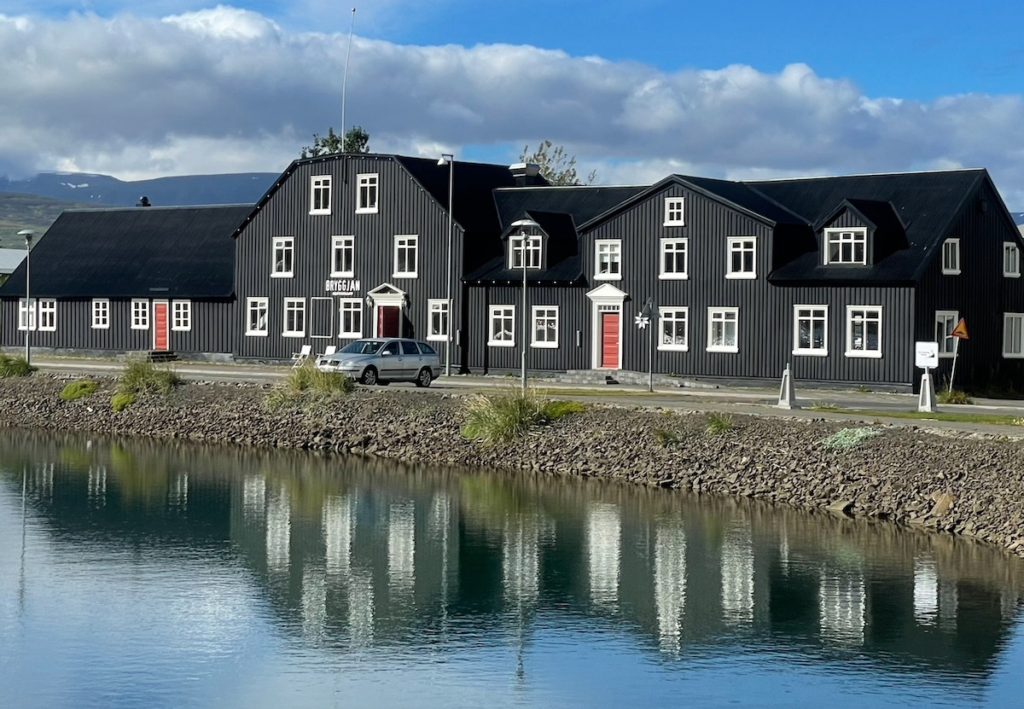
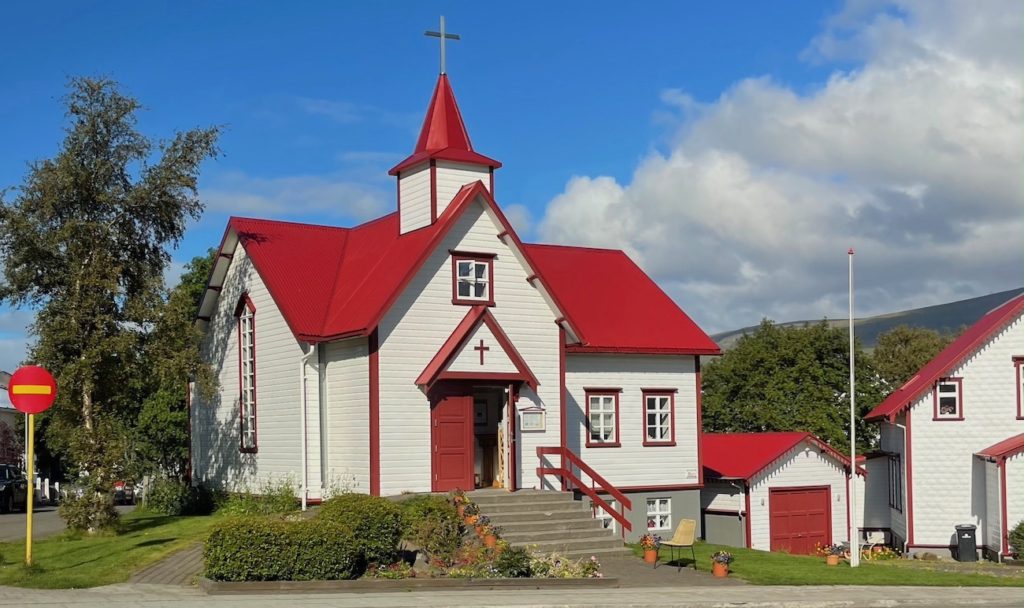
We joined our Saga Tours guide Gisli, a red-bearded part-elf, part-Santa embodiment of all things Icelandic. Gisli’s ancestors have inhabited Akureyri’s fjord and valley areas since 874: 1100 long years of history. In addition to leading tours, Gisli raises sheep and Icelandic horses on his nearby farm, and proudly showed off parklands donated to the Icelandic State by his relatives. He possessed serious Icelandic creds, so we believed every word when he explained to us the differences between elves, trolls, and hidden people.
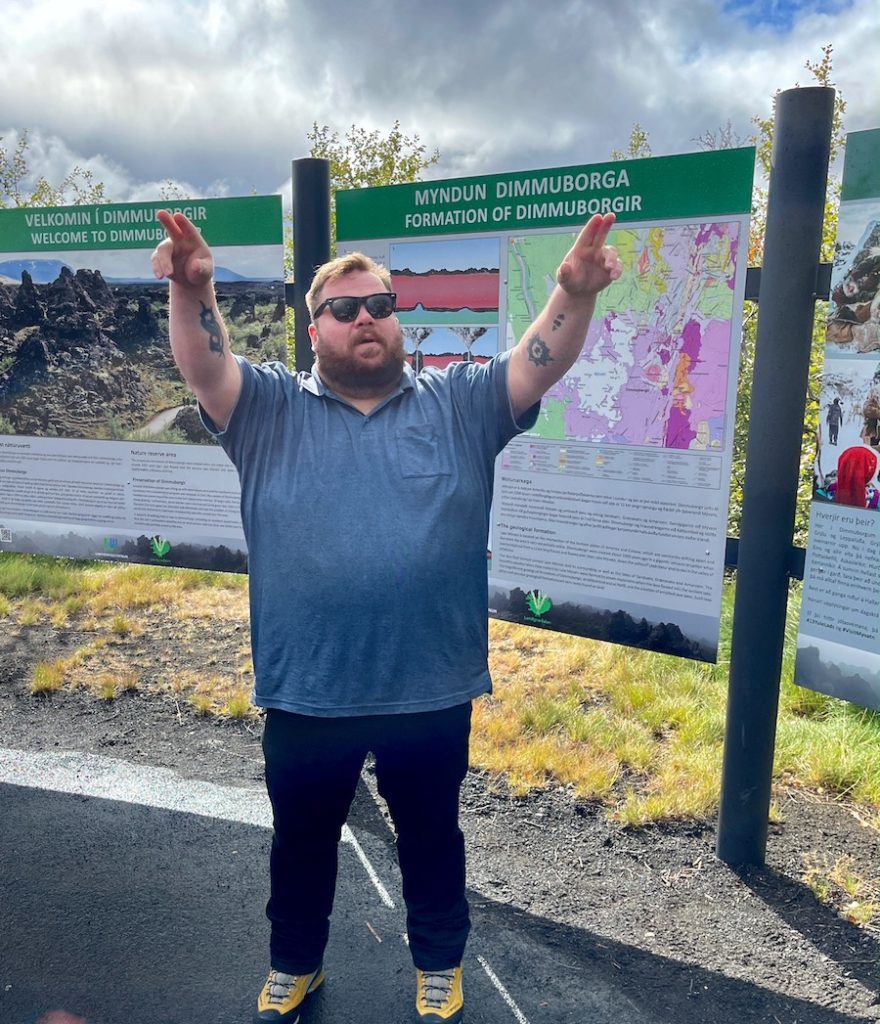
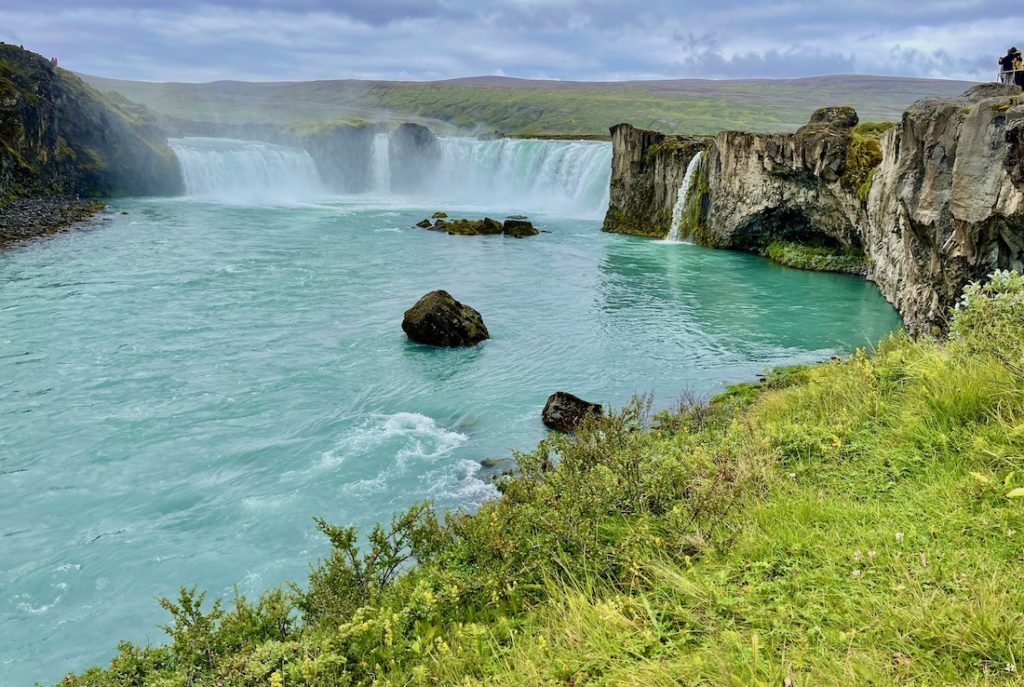
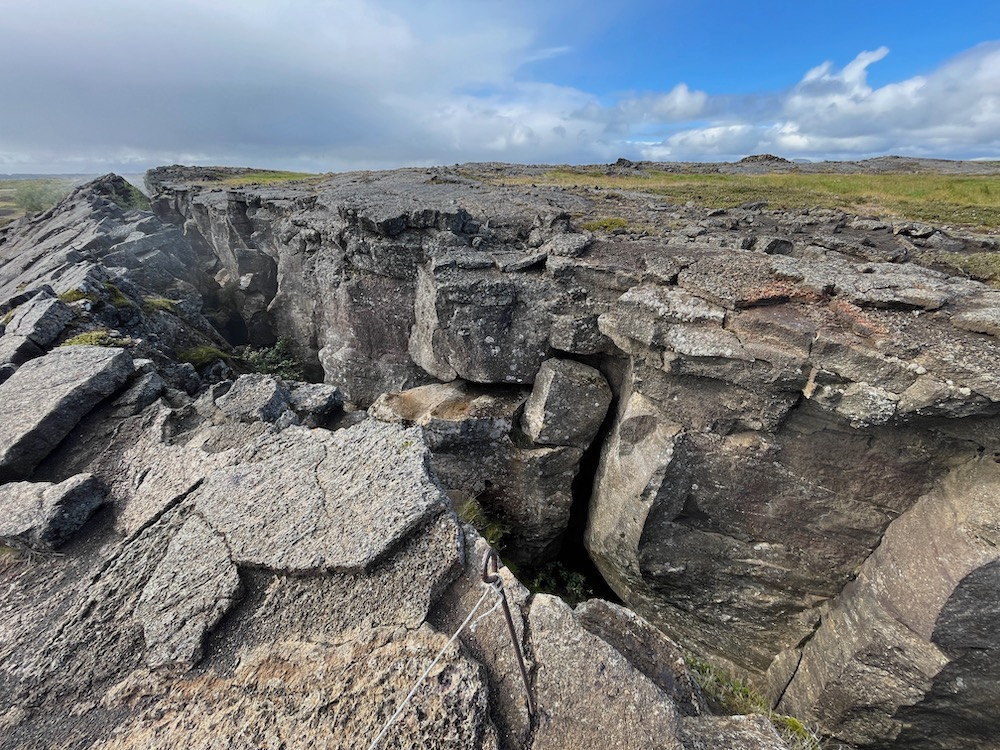
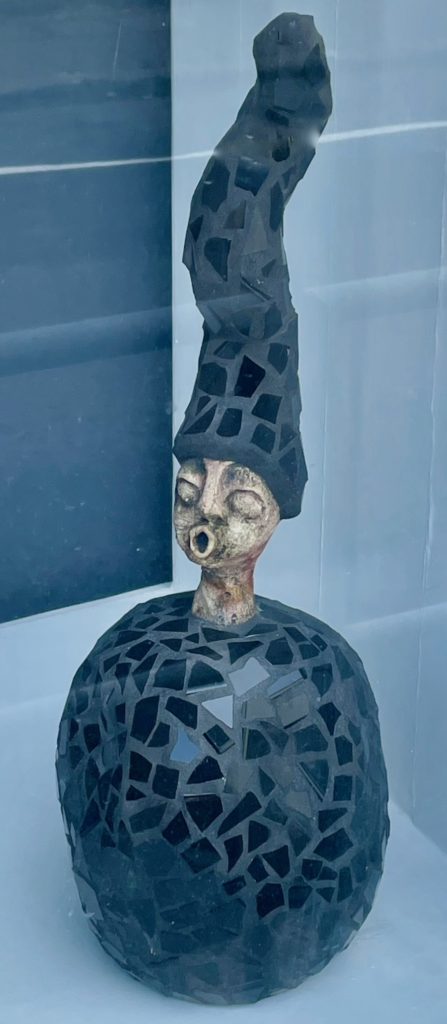
DO YOU BELIEVE IN HIDDEN PEOPLE? I BET YOU DO
A majority of Icelanders profess belief in such supernatural beings. Those beliefs go something like this, according to Gisli:
Icelanders’ reverence for Nature shines through their considerations for the elf population. Elves are small creatures who live in plants, flowers, and rocks. They eat pancakes. They’re mostly friendly, but sometimes road projects must be diverted so rock-dwelling elves won’t be destroyed. Icelandic landscapers think twice before moving rocks, and it’s never cool to throw rocks, since you might smack an elf on the head by accident.
Elves’ cousins, the hidden people, or Huldufólk, live in a parallel dimension to ours, look exactly like us, and can reveal themselves at will, although usually they don’t. Huldufólk may intervene to help or provide warnings, and if you’re lucky, you just might be helped by one in your lifetime, as Gisli’s grandfather was. And good news: If you simply must know more about these delightful creatures, you can attend five days of Elf school in Reykjavik, starting next week. Yes, really. (Don’t doubt me; just click the link and register HERE.)
If you’re smirking right now, stop that. When outsiders chuckle over Icelanders’ supernatural beliefs, they’re forgetting about the Tooth Fairy, the Easter Bunny, or any number of other invisible spiritual beings: hidden folk, pretty much. Some Americans carry on conversations in their heads with entities they can’t see every day, in fact.
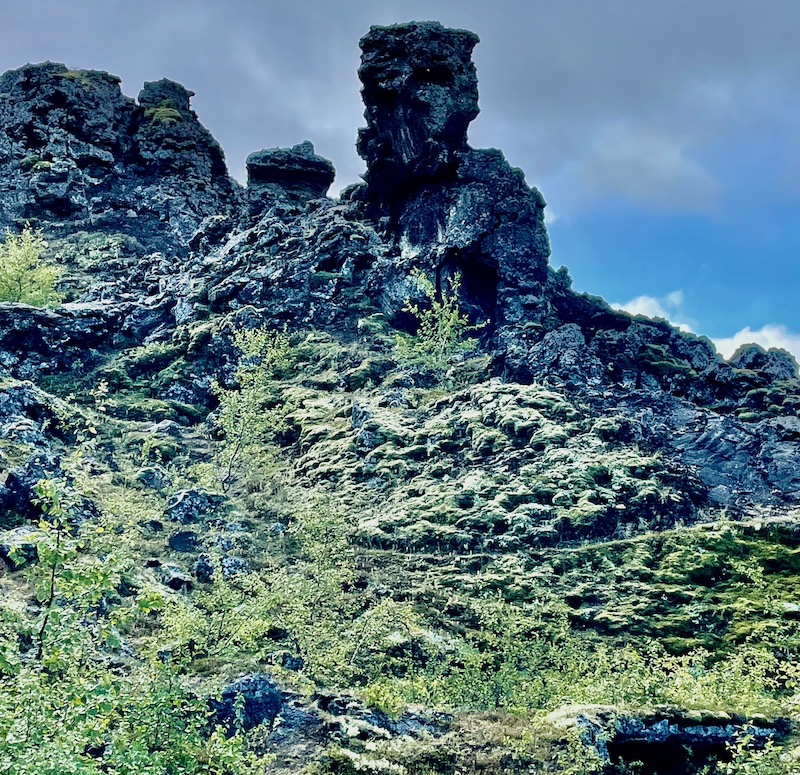
So no indulgent chuckling, people, since every culture relies on supernatural belief systems to explain the unexplainable. Similar belief systems exist across cultures, and have since the beginning of recorded history. Yet no wonder they’re so popular in Iceland where earthquakes, avalanches, and volcanic eruptions make life dramatically unpredictable. Where unseen natural powers can seem so randomly cruel.
Some may wonder why in Iceland officials may go so far as to divert road systems or halt construction projects due to supernatural suspicions. Viktor Arnar Ingólfsson, chief of Iceland’s Public Roads Administration as well as a crime novelist (of course), told an American radio interviewer as way of explanation: “You really have to listen to everyone, because you are probably going to meet them at a party after a while.” I mean, how much does it take, to listen? Iceland’s a small place, he reminded the interviewer, so it pays to compromise.
So the Icelandic penchant for peace-making and cooperation comes in handy on the elf front, and it seems to be working just fine everywhere else, considering that ‘lowest crime rate in the world’ and all.
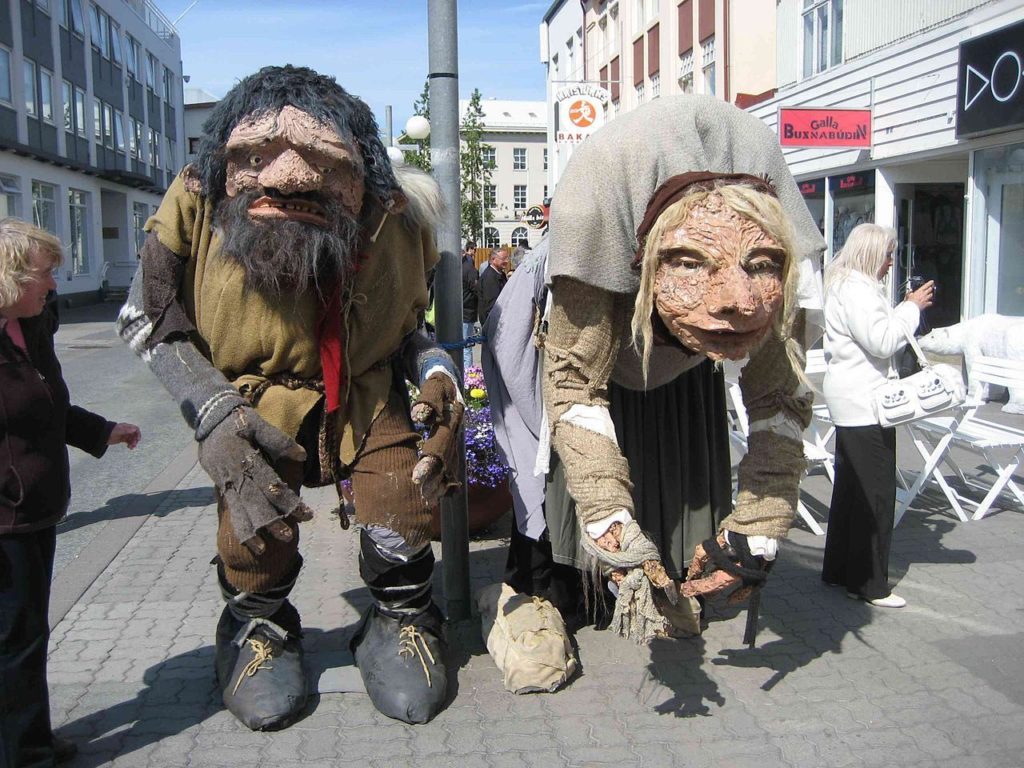
I almost forgot those thugs, the trolls. Icelandic troll beliefs come with a hint of Icelandic-appropriate cruelty, to go with the cruel landscape outside. Rather appropriate, I’d say, in a land where devil-red lava spews out of cones and scalding sulpheric waters bubble up from the bottom of Icelandic swimming pools.
Trolls are bigger, uglier, and meaner than elves, and they wreak all sorts of mischief: Meathook, Doorway Slammer, and Sausage Swiper’s mischief specialties match their names. Those three trolls are members of the Yule Lads, 13 Santas who reward or punish children at Christmastime. In Iceland, children set a shoe on a shelf for 13 nights, and each night one of the Santas deposits either a nice or naughty gift, depending on the child’s behavior: Bad children wake up to find a rotten potato in their shoe. So mean, those rotten Santas.
I can’t forget Jólakötturinn the vicious Yule Cat, a troll pet who lurks in the countryside at Christmastime, dragging off children to eat if they aren’t wearing new Christmas clothes. You can be sure that Icelandic parents make sure their children have at least one new item to wear, even if it’s just a pair of new socks. Can’t be too careful when the rampaging Jule cat stalks the land, searching for badly dressed children to eat.
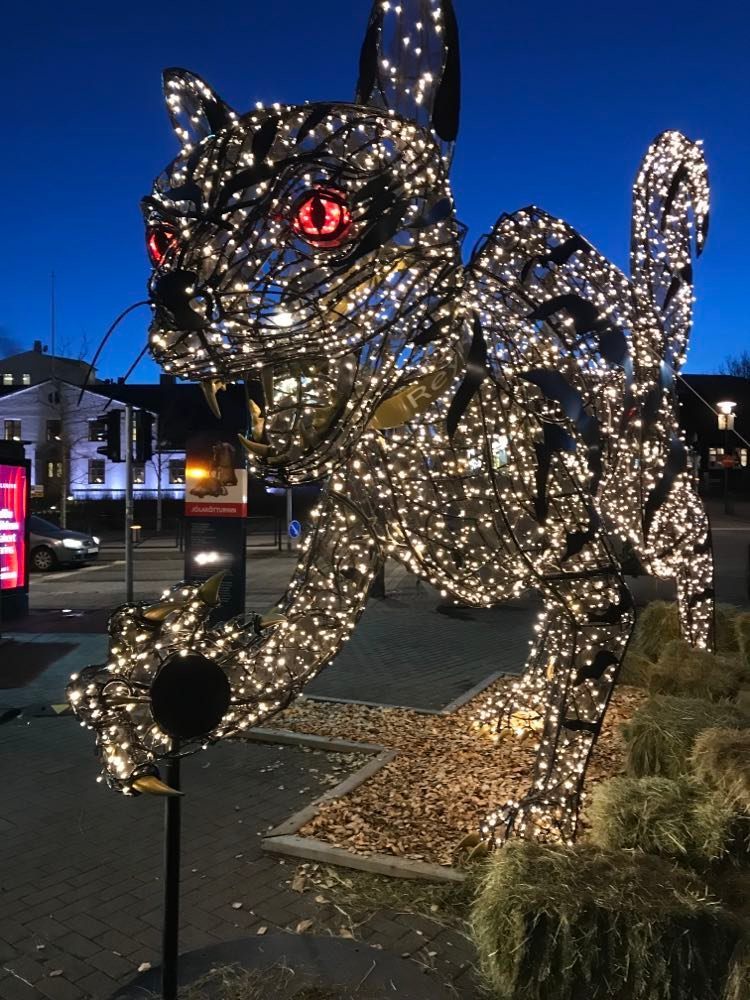
We visited Dimmuborgir, where the Bad Santas and that vicious cat lived among the stark lava fields and caves. We learned that scary stories were supposed to encourage children to finish their weaving, knitting, and sewing chores before winter set in, and frighten them so they wouldn’t venture out in the deadly winter Icelandic nights and freeze to death. So it makes a warped type of parental sense, since fear works fastest to encourage compliance. I wouldn’t want to deal with all that screaming, though, due to all those childhood nightmares.
False Craters, Myavtn Moonscapes, and the BEST Geothermal Baths
If that mean old Jule cat shows up near Lake Myvatn, tourists will pay the nasty kitty not a whit of attention, due to the fact they’re immersed in the gob-smacking scenery, or the Lake Myvatn Nature Baths, or both. No time for icky kitties.
Before our soak we hiked over sprawling lava fields, crater hills, and tectonic plates, as Gisli expertly taught us more about the Eurasian and North American plates at one location, and the Skútustaðagígar pseudo-craters at another.
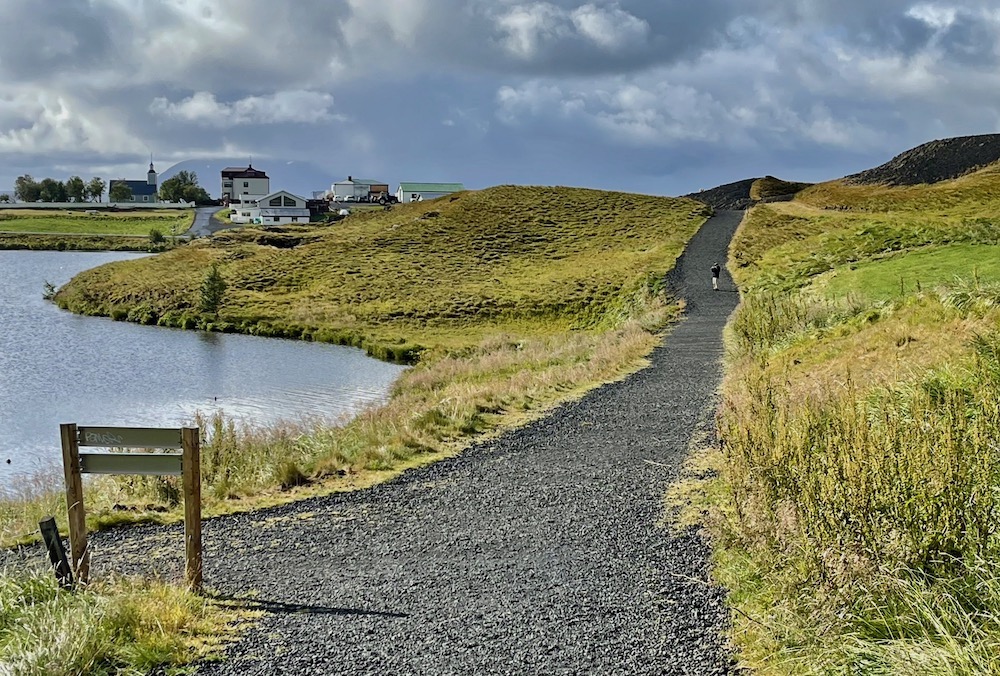
Our pseudo-crater walk proved to be one of our favorites due to the mesmerizing landscapes. In this area, volcanic vents formed when gas explosions caused boiling lava to flow over cool, wet surfaces 2,3000 years ago. No magma involved, hence the ‘pseudo-crater’ label, but wow. Turns out these particular rock formations exist in only a few places on earth, since the concurrence of elements needed for their formation – explosions, rocks, weather, the right temperature – seldom occur just so, as they did here, in order for craters to form.
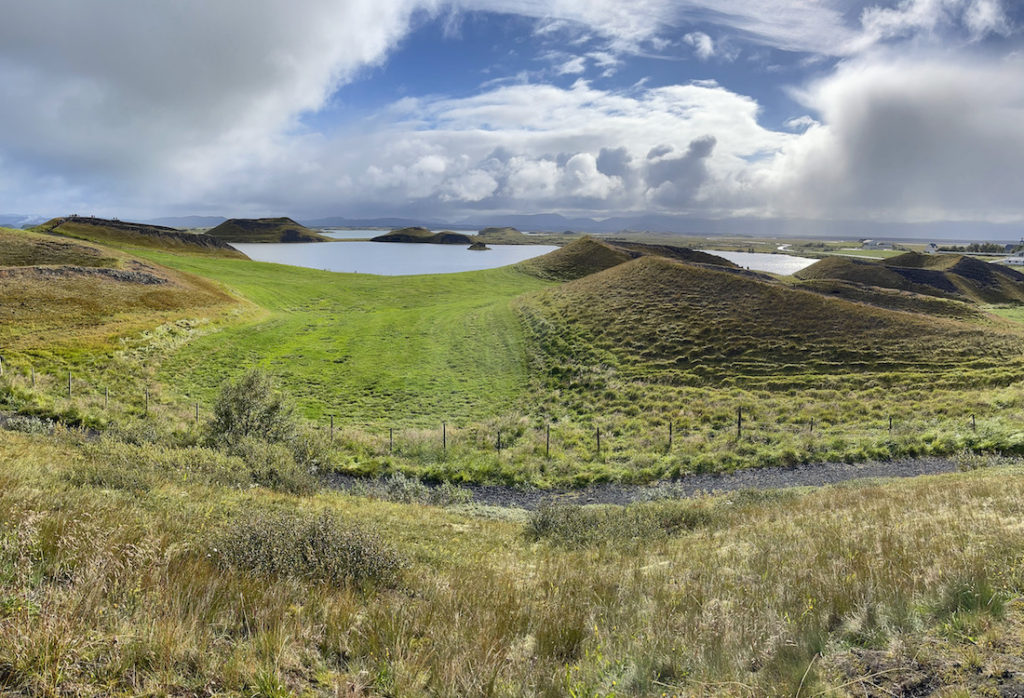
Then finally, finally……the soaking! Padre and I found the hottest spot in the Myavtn Baths soaking pools, and planted ourselves in the sulpheric steaming waters. We floated, and floated, and floated. (Ok the floating one was me, since Padre sinks. He was happy, though, and relaxed just wading around.)
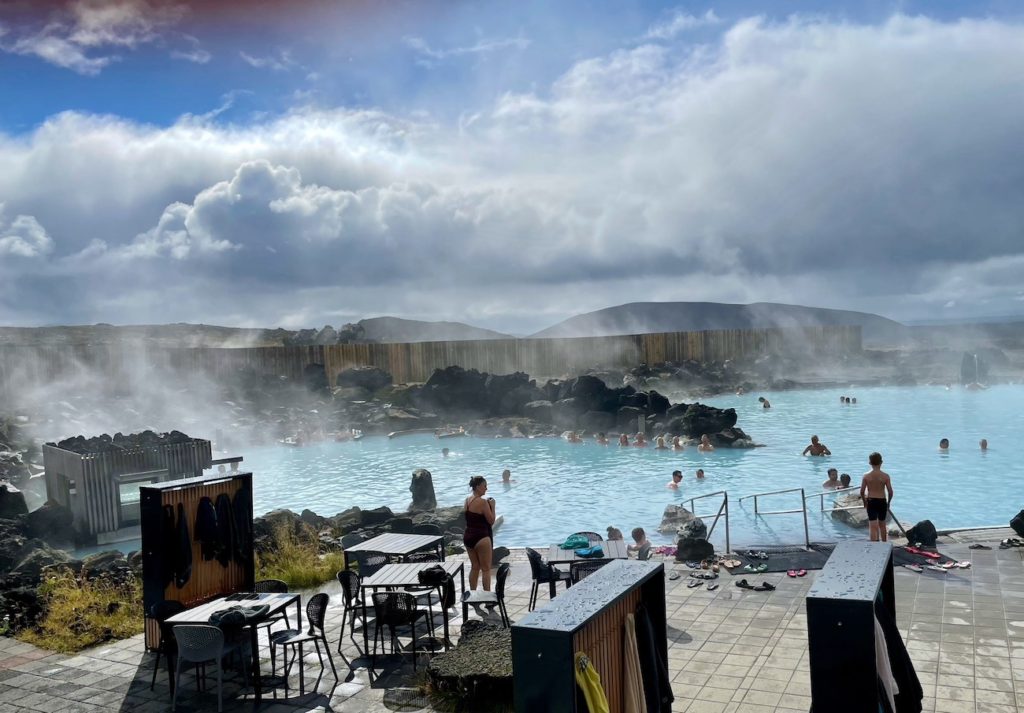
BACK TO THE SHIP, THEN THE LONG WAY HOME
After the Summit hauled up anchor, she slowly sailed down the narrow Eyjafjörður Fjord, the longest fjord in Iceland and one of the most beautiful on earth, I have no doubt. We hung over the ship’s top railings in the sunshine, soaking up the panoramic views of snow-capped peaks, picturesque small hillside farms, waterfalls, and wildlife on both sides. Whoa. What a day.
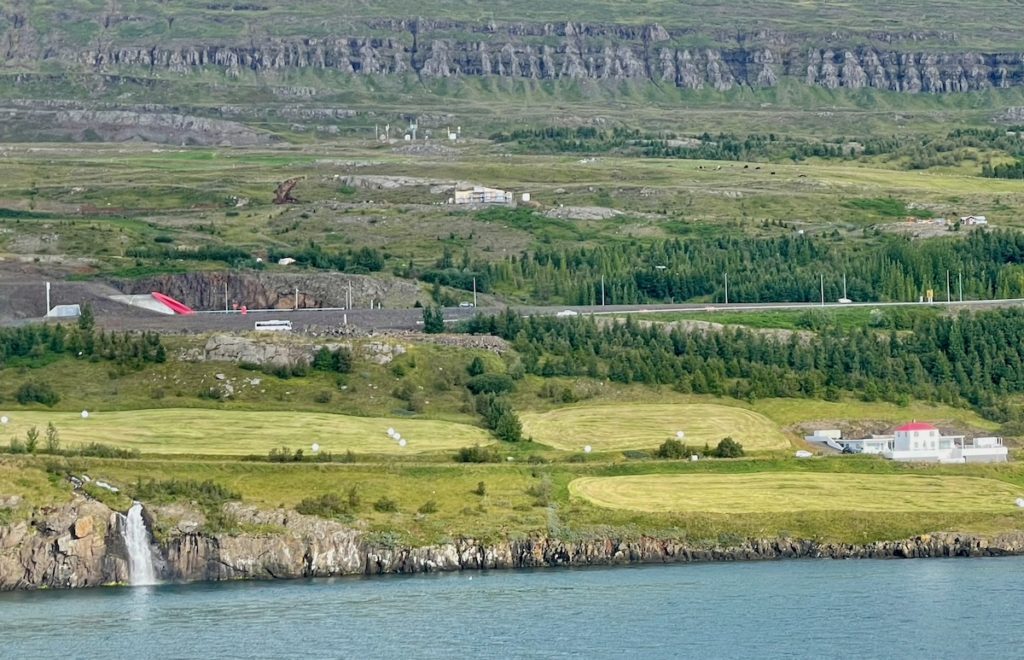
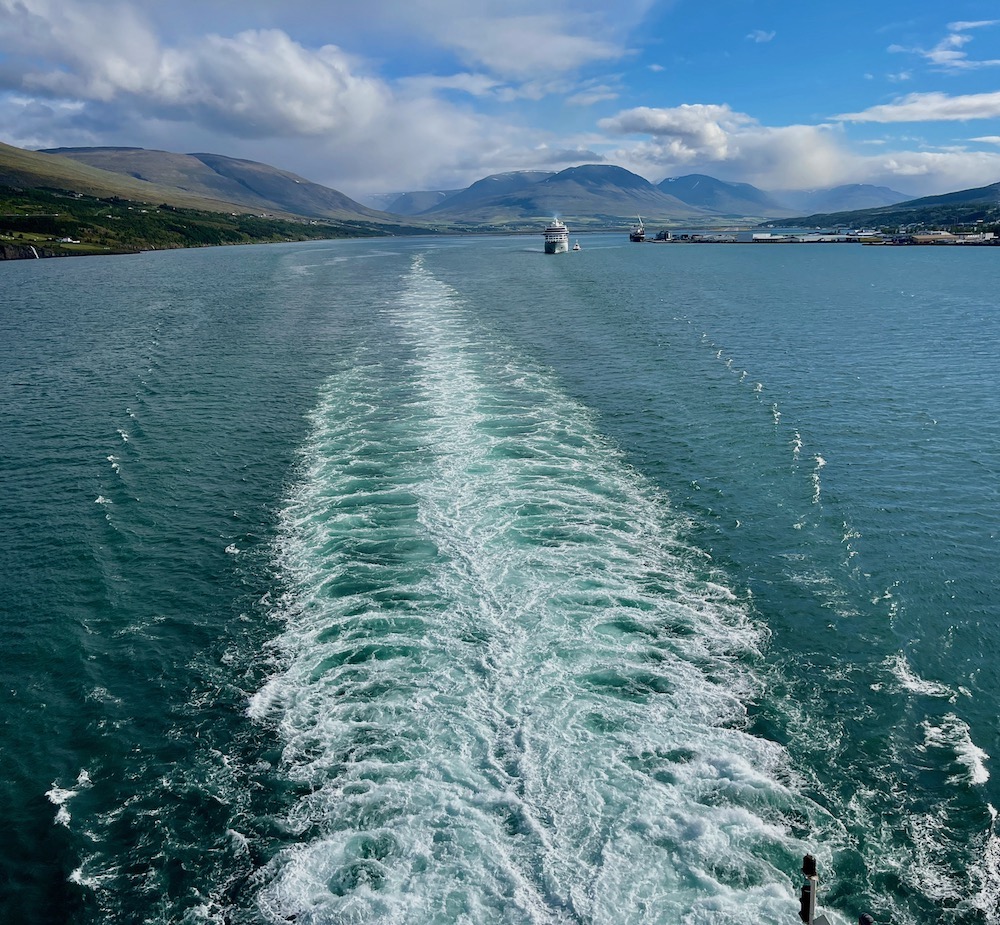
Next up: Greenland, Prince Christian Sund, and those disappearing glaciers. Greenland? Really? Who’d have ever dreamed we’d make it to Greenland in our little lifetimes? We didn’t until we did, and while there, we met some icebergs we absolutely loved. (No Titanic talk, y’hear?)
Thanks everyone, as always, for following along!
